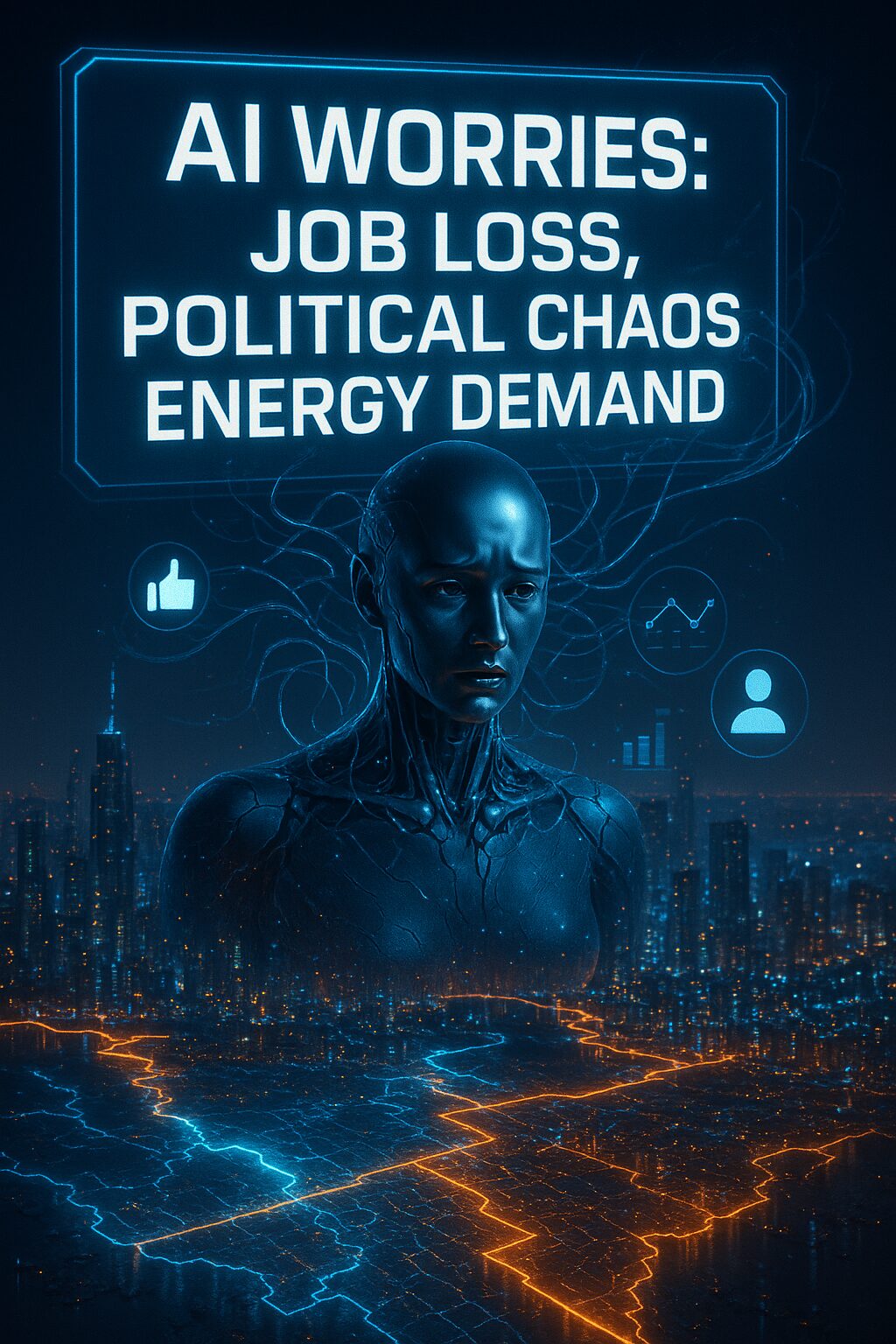
What Worries Americans About AI? Politics, Jobs and Friends
# The Dilemmas of AI: Navigating Public Concern and Societal Impact
In recent years, the emergence of generative artificial intelligence (AI) has unleashed a whirlwind of possibilities and pitfalls. What was once a futuristic concept now resides at the core of our lives, sparking heated debates and raising critical questions about its present and future impact on society. Nearly half of Americans have expressed apprehension regarding AI, casting a shadow of doubt on its integration into our daily lives. The concerns range from job disruption and deteriorating personal relationships to political chaos and significant energy consumption. While the potential benefits of AI cannot be ignored, it’s essential to address these fears as they paint a picture of a nation uncertain about wielding the double-edged sword of technology.
## Understanding Public Sentiment
In an eye-opening revelation, the Reuters/Ipsos poll, conducted in August 2023, shed light on American perspectives toward AI. The survey revealed that a significant percentage—47%—view AI as detrimental to humanity, starkly contrasting the 31% who hold an opposing view. The statistics evoke a deeper narrative about the dynamics of cutting-edge technology intertwining with the threads of ordinary life. The poll’s findings bring to the forefront the immediate and tangible concerns that many people associate with the rapid expansion of AI technologies. It also highlights the divide between public perception and AI experts, with the latter offering a more optimistic view on AI’s potential, as previously revealed by the Pew Research Center.
## The Spectrum of Concerns
While AI enthusiasts celebrate advancements in the field, everyday citizens express trepidation over core areas being affected by AI integration:
– **Political Disruption**: A staggering 77% of respondents fear that AI can disrupt political systems by propagating deepfakes and other misleading content. In an era where information influences major decisions and trust is fragile, the manipulation capabilities of AI can undermine democratic processes and erode public trust.
– **Employment and Workforce Impact**: The alarm around job losses is palpable. Over 71% believe AI will lead to significant job displacement. This concern echoes a collective anxiety about the future economic landscape and the fate of the workforce, prompting discussions on whether AI can be a complement rather than a replacement to human effort.
– **Human Connections at Risk**: Beyond economic implications, AI threatens the fabric of personal relationships. Generative AI’s capacity to replicate human-like interaction has caused two-thirds of those surveyed to worry about its replacement of genuine in-person relationships. As AI devices mimic human companionship, the fine line between convenience and human isolation blurs.
– **Environmental Concerns**: The energy consumption of AI technology emerges as another critical issue. Approximately 61% of the public is concerned about the extensive resources required to run and maintain AI systems. The energy costs associated with massive data centers highlight the need for sustainable advancements in AI infrastructure.
## Lessons from the Present
The myriad of concerns arising from AI integration narrate a fundamental truth: the pace of technological innovation often outstrips our ability to adapt socially and morally. As the world stands at the crossroads of a technological revolution, several lessons emerge:
1. **Balanced Progress**: The road forward necessitates a blend of vigilance and open-mindedness. Embracing AI advancements does not negate the need for policies that safeguard employment, privacy, and truth. Dialogue between technologists, policymakers, and the public must be robust and transparent.
2. **Community-Driven Solutions**: While AI is a universally applicable technology, its implementation needs to be sensitive to the fabric of communities it affects. Strategies that integrate local insights and address specific societal contexts are critical.
3. **Sustainable Development**: In light of substantial environmental concerns, aligning AI development with sustainable practices is crucial. Technological progress should parallel growth in eco-friendly infrastructures.
## The Emotional Quandary
How do we harness the full potential of AI while mitigating its adverse effects on our political systems, workforce, and personal lives? The question beckons reflection on our shared responsibility and innovative capacity. It provokes a larger contemplation on how, collectively, we can shape a future that not only leverages AI for progress but also preserves humanity’s core values amidst technological evolution.
In this technological era, the dialogue about AI is not merely an intellectual exercise—it is a necessity for constructing a future where artificial intelligence and human intelligence coexist harmoniously. As we forge ahead, asking the right questions, exploring community-centric solutions, and embedding ethical foundations in AI development will pave the way for inclusive growth and sustained societal well-being.


